We act like a business — quickly, transparently, and openly. Interview with Roman Klichuk, Mayor of Chernivtsi
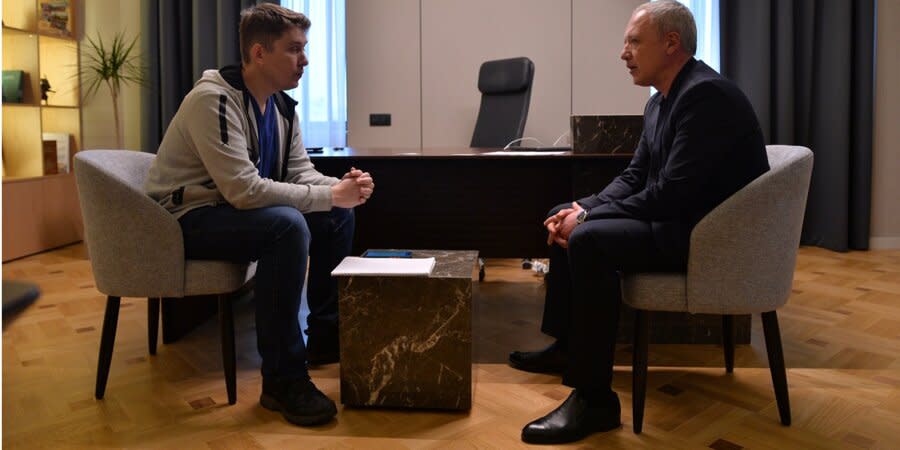
The newly elected mayor had some experience of working in the regional government - he was a member of the regional council and a member of the executive committee of the Chernivtsi city council. But first of all, he is a businessman. And he has business-related requirements for the activities of city council units and communal enterprises. That is why the rejuvenation of personnel and the introduction of digital systems, which allows for a more accurate diagnosis of problems and a faster response to challenges, have been intensified.
The change of government in Chernivtsi also accelerated the introduction of modern management tools. The perception of the city as a partner with whom international financial organizations, banks, and funds are ready and willing to do business with has increased. Why is it important, what business approaches are implemented in Chernivtsi, and how the war affected the activities of the city government - NV reveals in an interview with Roman Klichuk.
- At the beginning of last year, you were making plans for the development of the city, but everything changed on February 24. What did you reject, which tasks were you able to complete?
- Of course it was a difficult year. Many challenges: 2021 was the year of the coronavirus, and 2022 is the year of war. There were many plans: Chernivtsi has the worst roads and poor public transport, there are not enough public spaces, squares, parks. When we ran in the elections, we promised to solve these issues.
But the war began, and we directed the funds available in the city budget to local military units. During the year, UAH 74 million ($2 million) were allocated for these needs. A lot was spent on shelters and bomb shelters - 95% of our educational institutions work thanks to this. This is one of the highest indicators in Ukraine. And, of course, huge expenses were allocated to help IDPs.
- Did you have a shortfall in income to the local budget?
- In the spring, the Single Tax was canceled for private entrepreneurs registered as groups 1 and 2 (a Ukrainian tax classification - ed.). And this is the main part of our city's budget revenues, which fell. And fell hard. But thanks to the fact that salaries for the military were increased, the Personal Income Tax covered all these losses. Somewhere from June, the indicators caught up - and by autumn we reached the planned values. In general, the budget for 2022 was fulfilled and exceeded.
- What is the budget structure in Chernivtsi?
- Most of them are medium and small businesses. We do not have large enterprises like in Dnipro or Kharkiv. In Soviet times, there were lots of them, but almost all of them closed.
- You came to this position from business. What surprised you the most when you saw the work of the city council from the inside?
- What surprised me the most was that everything worked differently than it does in business. Chaos, uncontrollability, incoherence between different directions, lack of team spirit, lack of mission. And there are many people! About 13,000 people work in the vertical of the city government - it is similar to a large corporation.
We wanted to change the city because we didn't like the direction it was going. Chernivtsi did not develop for 10 years. We watched the neighboring cities - Ivano-Frankivsk, Khmelnytskyi, Ternopil - and were outraged that such a beautiful city was degrading. Even young people left.
- Abroad?
- Across Ukraine! And it was a challenge for myself. We created a good team based on businesspeople, educators, doctors, and other important specialists. They registered for the elections 6 months before they were held and won. It was a revolution in Chernivtsi...
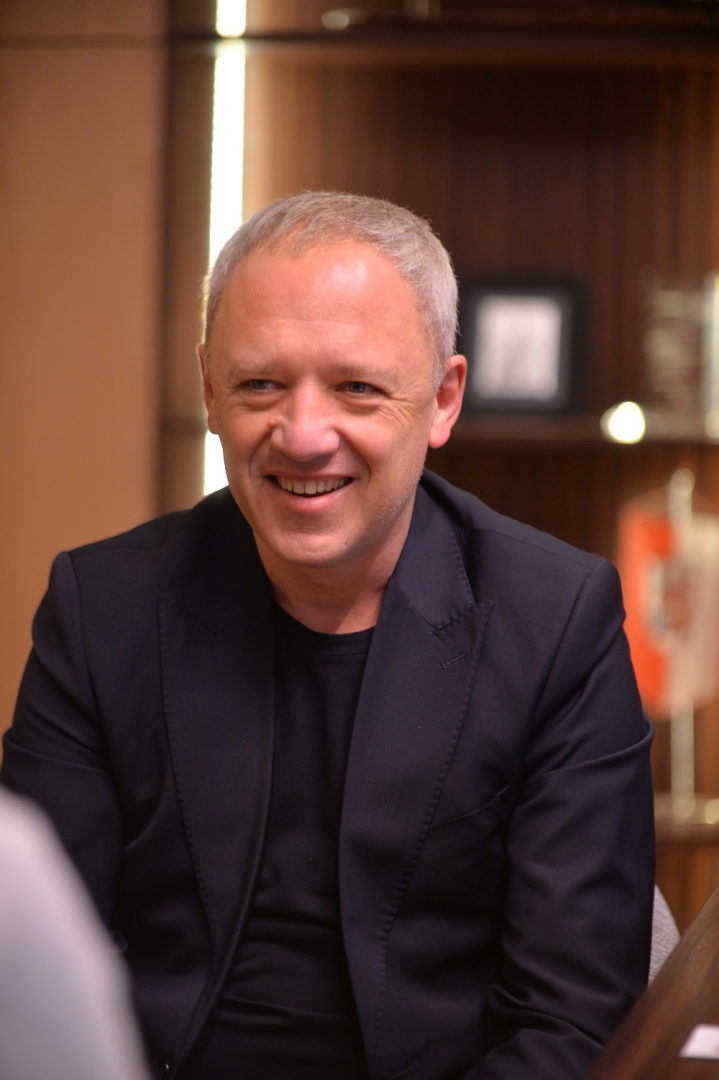
- Did you manage to change something during this period?
- The system that was built over the course of 20 years is old, outdated, and is difficult to fight with. I believe that one of the biggest achievements is creating a team of people who came to the departments, management, utilities. We rejuvenated it a lot, which helped to introduce digital services. We try to act as in business - quickly, transparently, openly.
Since 2021, we have done a lot and I think that the residents of the city have felt it. Money was invested in road repair, public transport, and the fight against corruption.
- Can you provide a specific example?
- I am a crisis manager. There was a task to reduce losses at utility companies, which for years have been subsidized from the budget, despite tariff hikes. For most utilities, we either reduced losses or turned them into profit.
Second. In 2021, we took a big step in the openness of land and real estate sales. Previously, land was given to developers, but we held open auctions.
- Is it integrated with your geospatial portal (a publicly-accessible database of land ownership in Ukraine - ed.)?
- Of course. Any investor can come and see what plots the city has. Also, last year, we allocated funds for conducting a land inventory. They discovered many areas that were used, but which were not paid into the budget. In 2015, Chernivtsi waived the real estate tax – the business lobby voted for it in the city council. From 2015 to 2021, the city lost approximately UAH 150 million ($4 million) – only on this tax. We managed to restore it in 2021.
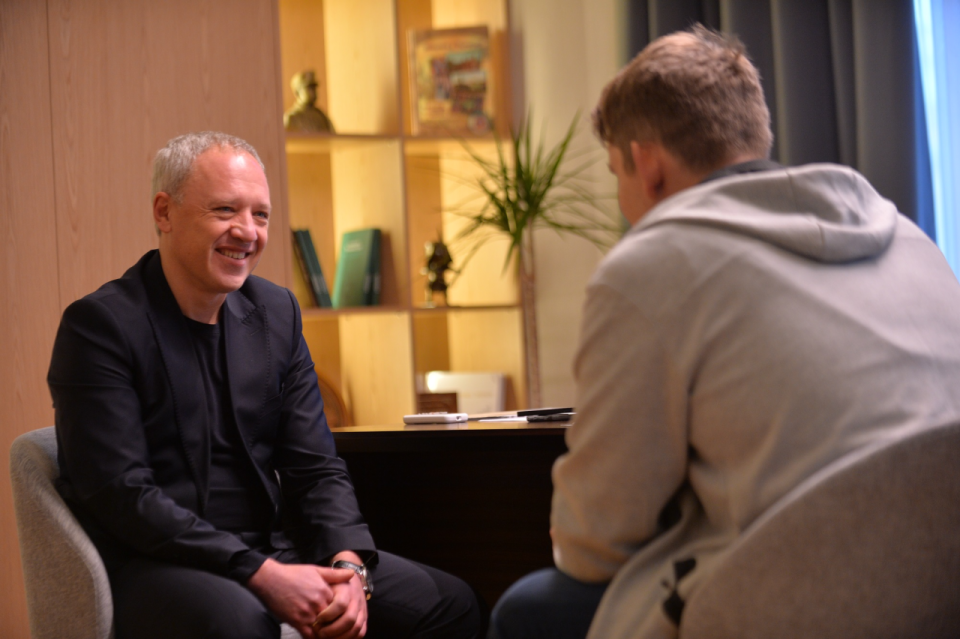
We audit all the premises. We analyze how they are used. And we try to break all the schemes that were there before. For the second year, we are trying to show that Chernivtsi is transparent, open, and there are fair rules.
- Is there a demand for these new services?
- Of course. [Investors] come, buy, the price increases. The last time [the city] sold a plot of 80 acres. The starting price was UAH 10 million ($270,800), and it was sold for UAH 41 million ($1.1 million).
Geoinformation system
In 2017, the Chernivtsi City Council signed a memorandum on cooperation with the European Union Anti-Corruption Initiative in Ukraine (EUACI). During the change of government in the city, this initiative was preserved and even expanded.
"Corruption is a disease in Ukrainian society and in local councils. When we won the elections, the fight against it was among our priorities," says Roman Klichuk.
Read also: Mayor of Chervonohrad on life in the rear, and investment
Geoportal is one of the most important points of cooperation with EUACI. The portal is already a key element of communication between the authorities and Chernivtsi residents. In 2023, its expansion is planned to reflect the important issues for residents and guests of the city as much as possible - the beautification and protection of cultural heritage. After all this information is added to the map, the City Council plans to identify areas of responsibility, and describe the processes and those who are responsible for them. Then criticism from the people of Chernivtsi will take on a new meaning - it will become qualitative. Where there are really questions for managers, they will be resolved immediately.
For employees of the city council and employees of communal enterprises, the geoportal is already turning into a site of daily work and monitoring. Currently, it shows itself best in the work of the department of urbanism and architecture. For example, land issues brought to the session are always discussed while broadcasting information from the geoportal. Therefore, the geoinformation system is primarily about operational access to information and its use during the development of solutions.
With the help of the EUACI, Chernivtsi is purchasing software for managing revenues in the community budget. Digitization of processes means control, reporting, and the reduction of corruption risks.
Same rules for business
- Are there relocated businesses in Chernivtsi?
- Chernivtsi is one of the safest cities - it is 40 kilometers from the border with Moldova and Romania. We registered 62 enterprises. 53 remained, and nine returned to the liberated territories. When they arrived, we helped them with locating premises, resettling staff, contacts. Introduced them to local businesses.
- Who is left with you?
- There are two plastic production companies - Kharkiv and Kyiv. (Outside the window, an air raid siren goes off. Roman Klitchuk curses quietly, but we continue the conversation - ed.)
There are several small firms with unusual business. For example, a company that is a monopolist in the country and one of the top three in Europe came from Kharkiv - they manufacture pumps for pumping honey from beehives.
- We spoke with several companies which are opening new production sites in western Ukraine. They call it not relocation, but expansion of production. Are there similar examples?
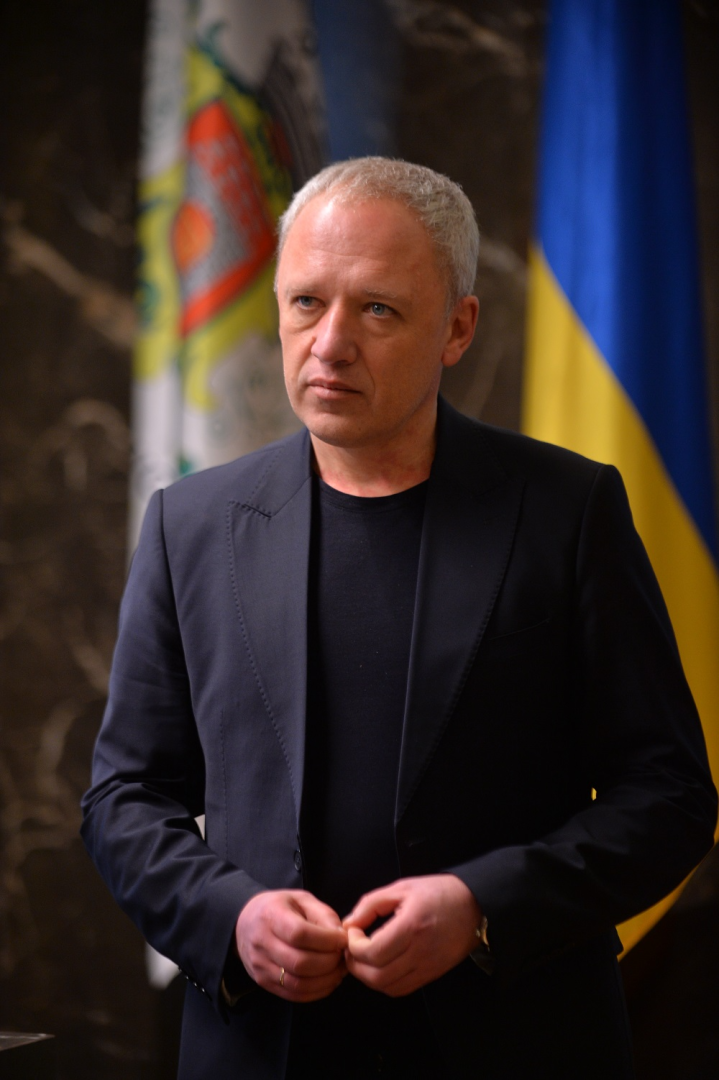
- I hope that the majority of businesspeople will stay in Chernivtsi. They are already connected with local business – 50-60% of the staff are local.
For example, there is the company NeverDak from Kyiv Oblast, which produces premium class fireplaces. They said that even if they return to Kyiv, their branch will remain in Chernivtsi, because it is convenient to work here from the point of view of logistics.
- You mentioned Soviet enterprises that closed down. Are there free industrial spaces, or maybe there are projects for the creation of technoparks that can be offered to businesses in Chernivtsi?
- Yes, the private business that currently owns these plants rents out the space. And last year we decided to create an industrial park on the basis of a utility company, which is located on 15 hectares. I hope that we will start in February.
- What economic sectors are promising for Chernivtsi?
- We are close to the EU, we are at the crossroads: so first and foremost is the creation of transport hubs.
Our city has a historical heritage, it is a sin not to develop a tourism industry.
- Is there a willingness from European companies to invest in Chernivtsi?
- In 2022, we concluded three twinning agreements: Metz (France) and the German cities of Dusseldorf and Mannheim. At the same time, Dusseldorf terminated its agreement with Moscow and concluded an agreement with Chernivtsi.
First of all, humanitarian support for Ukraine is conducted in this way. But we also understand that contact with them is an impetus for contact with their businessmen. We talk about it at every meeting. But I understand that during the war, investments from large European companies are unlikely to come.
- But you need to prepare for this.
- We do not divide things into European business and Ukrainian business. We make the same rules for everyone who comes to Chernivtsi Oblast. Without legislative changes in the country as a whole, without providing businesses with economic freedoms, an investor will not come exclusively to Chernivtsi.
Humanitarian hubs and permanent migration
- How is your work with IDPs and humanitarian aid organized?
- From February 24 to June 1, up to 1 million people passed through Chernivtsi. People came for 2-3 days, for a week, and moved on. There were a lot of problems with housing, feeding, and acclimating them. I also hosted people from Kherson in my mother-in-law's apartment - 12 people and a dog.
A humanitarian hub was created in Chernivtsi to receive aid from European funds and sister cities. It was a transshipment base because foreigners were afraid to go to Mykolaiv, Kharkiv, and other cities near which hostilities were taking place.
- Was it a municipal humanitarian headquarters?
- We were one of the founders. They were negotiators who sent letters to almost all the cities of the European Union, Canada, the U.S., and the UK.
There is also a logistics hub Help Ukraine Romania. 90% of it was created by forced migrants from Kyiv.
- Why is Romania in the name, if it was created by Kyiv residents?
- They have two warehouses. One here, and the other in the Romanian city of Seret, 10 km from the border. Foreign drivers were afraid to go even here. And the Romanian authorities and the local community went to meet them, provided them warehouses for free.
Tens of thousands of tons of humanitarian aid passed through these two hubs. It was impossible to calculate everything else - at the beginning, everything was in demand, so everyone was engaged in humanitarian work.
- There were several scandals even in the field of distribution of humanitarian aid. Did you have to use any anti-corruption mechanisms to prevent this?
- The business and IT cluster immediately joined our humanitarian hub. They made software that allowed them to control each unit of product. All the oversight bodies that could be there were there. And there were no complaints of corruption.
- How many IDPs are registered in Chernivtsi?
- Officially - 43,000. Unofficially, another 20,000 lived in Chernivtsi, who were not registered for various reasons. But how many of them are still actual now - it is difficult for me to say, because the IDP mechanism does not provide for deregistration. A person who registered in Chernivtsi could leave for Romania. And it is not known whether it will be for a day or two or forever. There are people who returned home after the liberation of Kharkiv Oblast or Mykolaiv Oblast. But after the shelling, they are coming to us again. This migration is permanent.
- What did you, as a municipality, have to do for IDPs?
- The most acute problem is the organization of accommodation. In addition, food, medical assistance, placement of children in kindergartens, schools. Creation of comfortable conditions to make it easier to survive the stress.
- How was it all financed?
- Both from the city budget and with the help of funds that came to the city. But they appeared sometime in May. Chernivtsi patrons helped in the first months.
- Are you creating compact living spaces for IDPs?
- At first, people lived in kindergartens, schools, and dormitories. After that, there was an order from the government to prepare for the school year. This requirement was partially fulfilled.
Many European funds have allocated money for the reconstruction of premises for IDPs. But these projects are still in the process of implementation. We have already received EUR 3 million as part of the "Special Support Program of Ukraine/EU4ResilientRegions" project, which is co-financed by the EU and the German government for the construction of a modular town. It will have heating, furniture, playgrounds, shops. There should be an opening [of this town] in February. But it is for a maximum of 300 people. Chernivtsi also won a grant from the European Union ("EU support in providing housing for internally displaced persons in Chernivtsi") in the amount of EUR 10.5 million for the construction of 7 full-fledged houses. We are participating in another similar project and may receive comparable funds. The Czech government gave us funds to support IDPs and modular houses.
Cooperation with EUACI during the war
By the spring of 2022, EUACI supported the desire of the Chernivtsi City Council to help the military. EUACI handed over dozens of radios and drones. The city council notes that this is actually valuable, because the program did not previously provide for this type of cooperation. Theisequipment was sent to the Chernivtsi military, which is guarding various parts of the country.
In this year, the city is expected to introduce an electronic reception desk with a separate module on the accountability of city council members. They agreed on the technical aspects of this task at the beginning of January. This e-reception room will help improve interaction between the authorities and the community, organize monitoring of the response of city council employees to requests and appeals, and improve the provision of feedback.
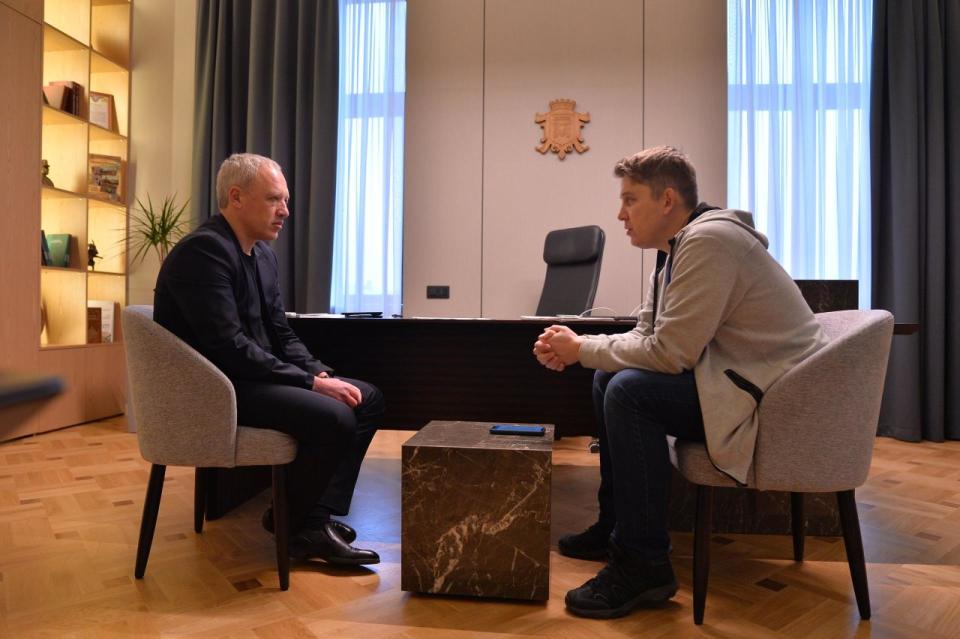
The municipality should be a partner
- Does focusing on publicity and transparency help you cooperate with donors and partners?
- Of course. It is important for a partnership that the other party is open and transparent. We act quickly and react promptly, and adhere to schedules. Foundations and sister cities see that we report and react. The German KfW bank says that the people of Chernivtsi respond to their requests in half an hour, and this impresses the Europeans.
Last year, the Chernivtsi city council was recognized as one of the most open councils in Ukraine. We just kept doing what we were doing until February 24th.
We received a loan for EUR 53 million to replace the water supply, where the grant part from the German government is EUR 16.5 million. It was supposed to be purely credit funds. But the Germans saw Chernivtsi as a reliable partner, so part of the financing of the project will be in the form of a grant. The interest rate was reduced from 2% to 0.5%. This will save UAH 130 million ($1.11 million) during the lending period.
In parallel with the implementation of technical changes, we conducted a comprehensive management audit of the Chernivtsi Water Canal. It was carried out by Deloitte with funding from the EU Anti-Corruption Initiative.
We also agreed on the financing of a similar audit in the Trolleybus Administration, which will take place in the second half of the year.
This is important, because the assessment is carried out according to international standards.
- A new challenge that appeared in the fall is energy security...
- This is not something new. Private business has always invested in energy saving. It was clear that energy would become expensive over time. We also insulated all of our schools last year. And now, already, we see the effect of savings of 40%, just on heating. We invested funds in replacing streetlights - saving another 30%. These projects will pay themselves off in 3-4 years.
- Do you have any comprehensive energy efficiency programs?
- No. There are local ones in different directions. The heating of schools and kindergartens. Teplokomunenergo (the regional heating authority - ed.) has already purchased 4 pellet and wood boilers for schools. There are plans to convert another 15 schools and kindergartens to pellets. Sooner or later, the price of gas for budgetary organizations will reach market rates, so you need to prepare.
- Do you already have plans for the post-war recovery period?
- As the head of the city, I believe that the plans we made in 2021-2022 will not change. My task as a manager is to do everything to ensure the city has funds. The goal is to make the city attractive for investment – to make it beautiful and attractive for tourists: put parks, squares, roads, building facades in order.
After the war, Ukraine will be different. A lot of money will come here, we will join the EU and live according to the rules that exist in Europe. And we need to prepare for this.
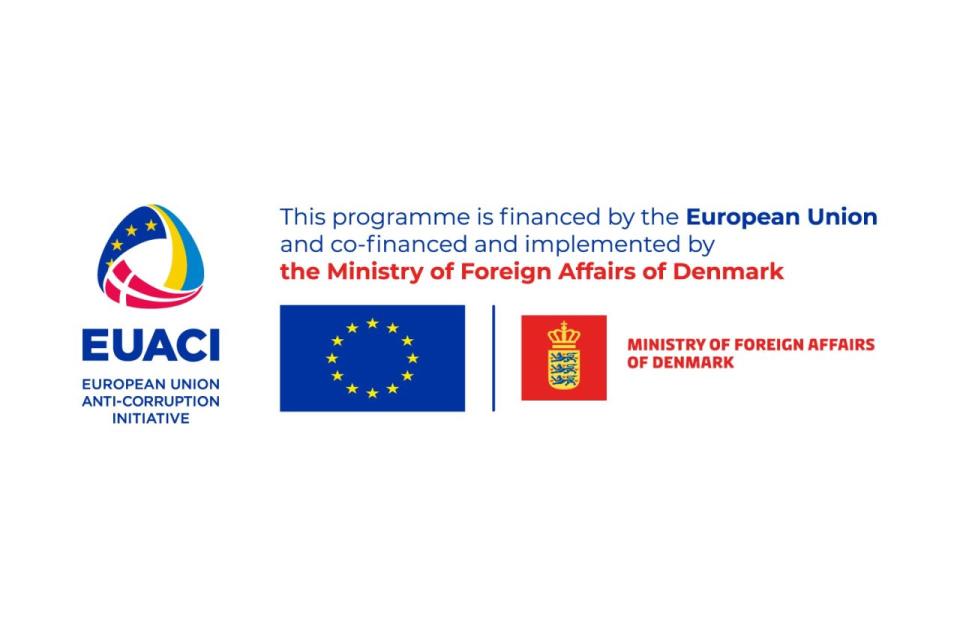
The project was created with the support of the EU Anti-Corruption Initiative in Ukraine (EUACI)
Read the original article on The New Voice of Ukraine
